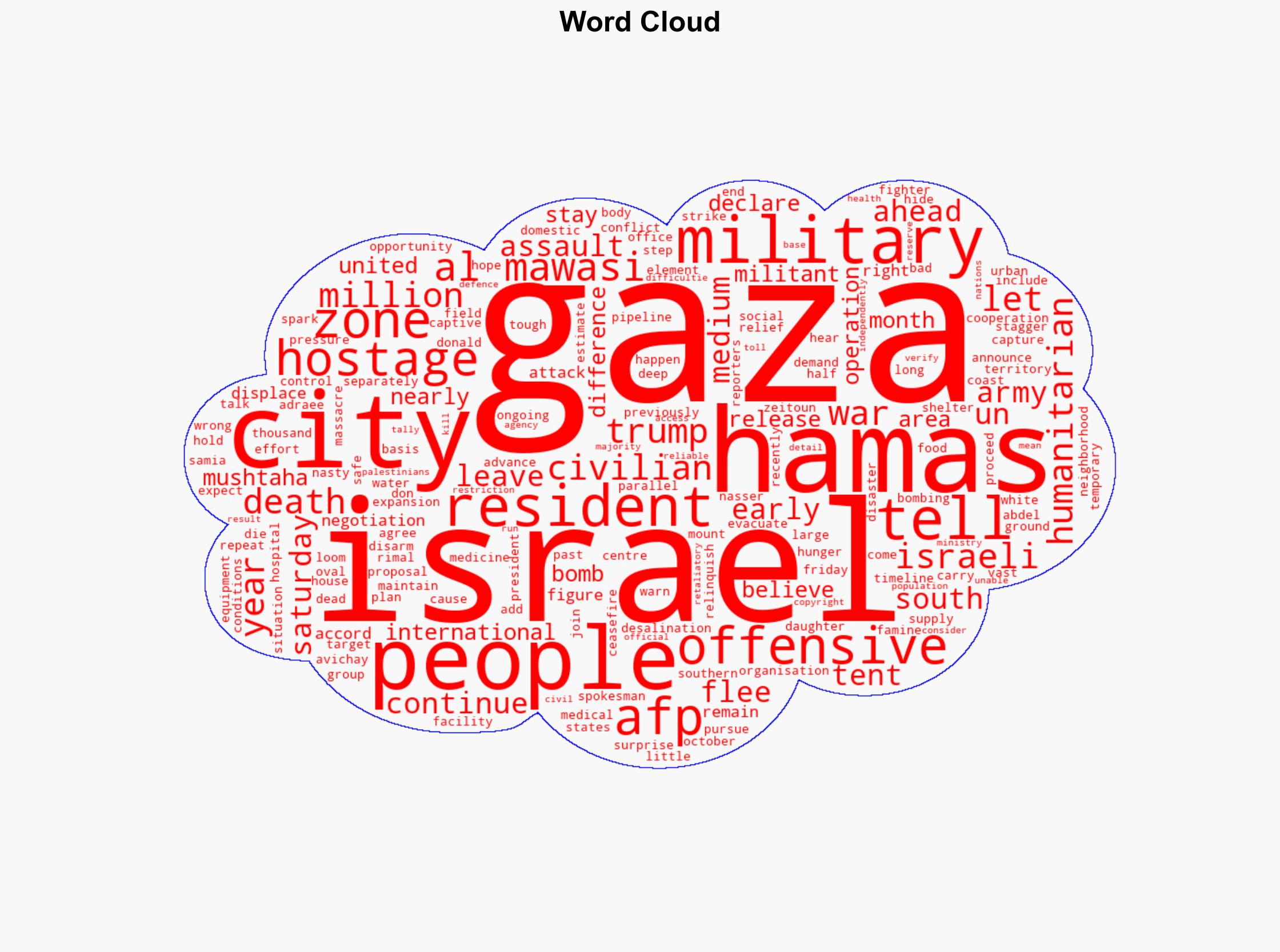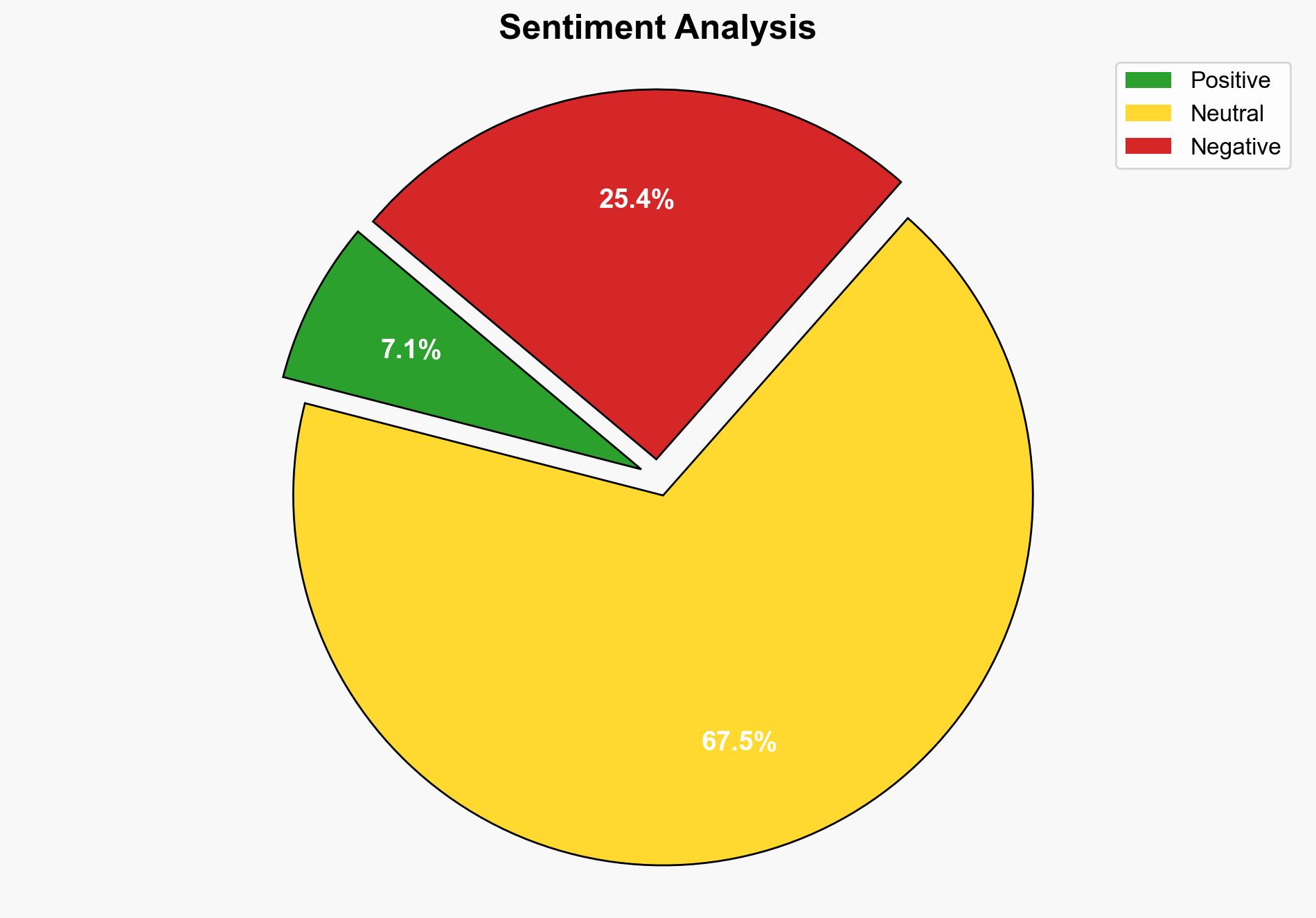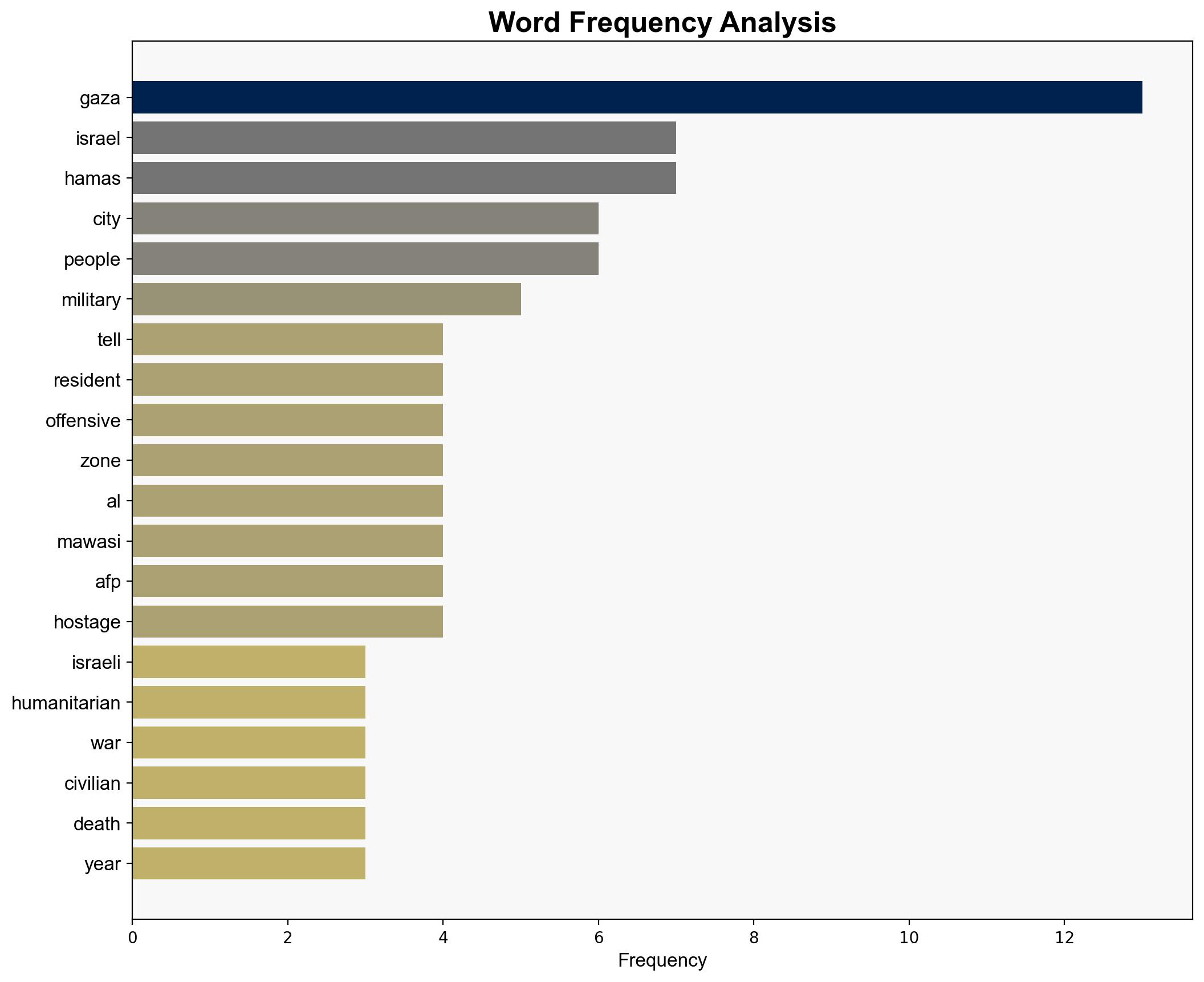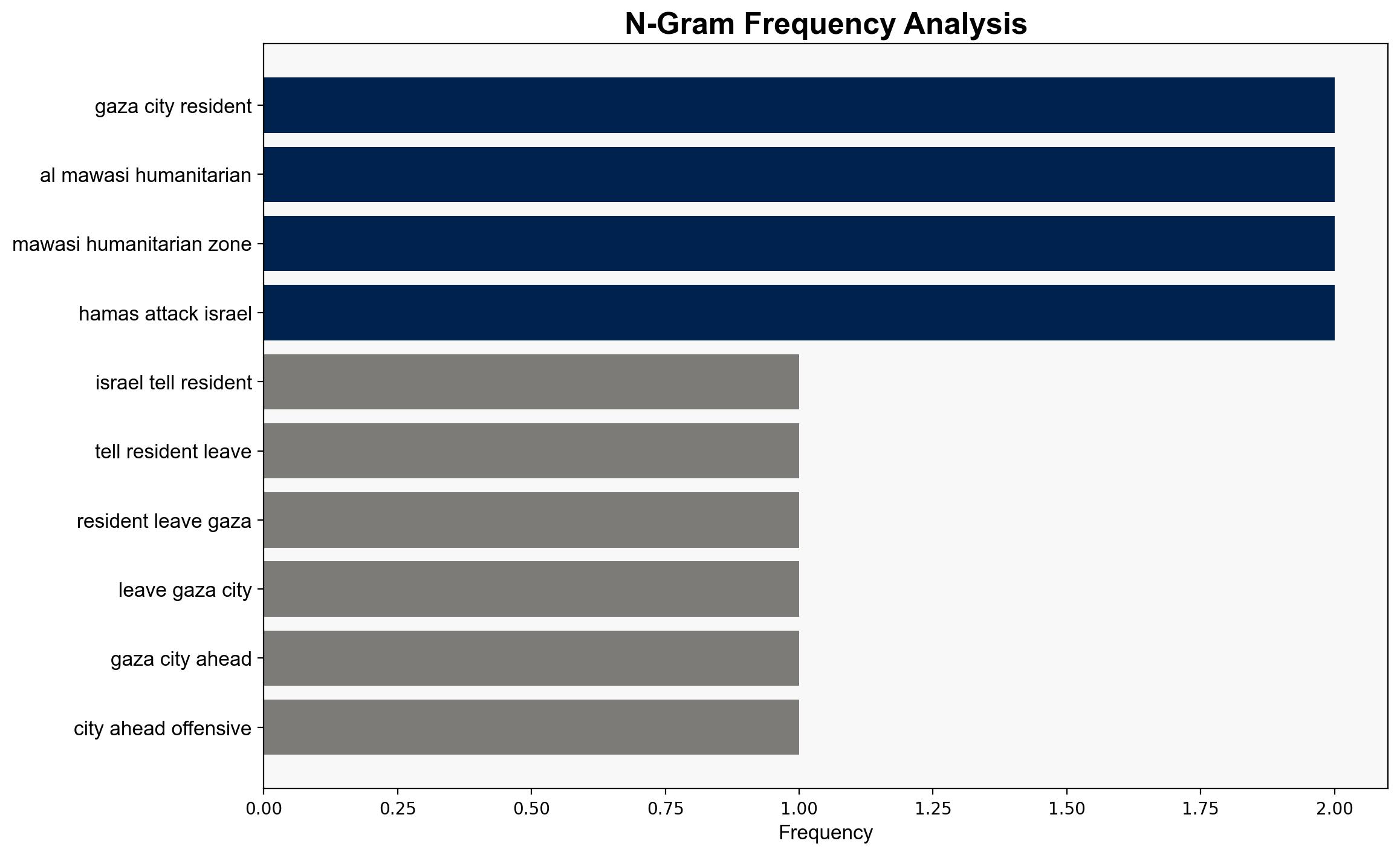Israel Tells Residents To Leave Gaza City Ahead Of Offensive – International Business Times
Published on: 2025-09-06
Intelligence Report: Israel Tells Residents To Leave Gaza City Ahead Of Offensive – International Business Times
1. BLUF (Bottom Line Up Front)
The most supported hypothesis is that Israel’s warning to Gaza City residents is a strategic move to minimize civilian casualties and international backlash during a planned military offensive. Confidence level: Moderate. Recommended action: Monitor the situation closely for humanitarian impacts and potential escalation, and engage in diplomatic efforts to facilitate humanitarian aid and conflict de-escalation.
2. Competing Hypotheses
Hypothesis 1: Israel’s warning is a genuine attempt to reduce civilian casualties and mitigate international criticism by establishing a humanitarian zone and facilitating evacuations.
Hypothesis 2: The warning serves primarily as a psychological tactic to create confusion and weaken Hamas’s operational capabilities by causing mass displacement and logistical challenges.
Using Analysis of Competing Hypotheses (ACH), Hypothesis 1 is better supported by the establishment of a humanitarian zone and the ongoing cooperation with international organizations. However, Hypothesis 2 cannot be dismissed due to the potential strategic benefits of causing disruption within Gaza.
3. Key Assumptions and Red Flags
Assumptions:
– Israel intends to minimize civilian casualties.
– Hamas will not exploit the humanitarian zone for military advantage.
Red Flags:
– Lack of independent verification of casualty figures and conditions in Gaza.
– Potential bias in reporting from both Israeli and Palestinian sources.
4. Implications and Strategic Risks
The offensive could lead to significant humanitarian crises, with potential for mass displacement and increased civilian casualties. The situation may escalate regional tensions and draw international condemnation, impacting geopolitical alliances and economic conditions. Cyber threats could also increase as both sides leverage digital platforms for propaganda and operational disruption.
5. Recommendations and Outlook
- Engage in diplomatic dialogues to promote ceasefire negotiations and humanitarian aid access.
- Prepare for potential refugee influx and coordinate with international organizations for relief efforts.
- Scenario-based projections:
- Best Case: Successful evacuation and minimal casualties lead to a negotiated ceasefire.
- Worst Case: Escalation results in widespread humanitarian disaster and regional conflict.
- Most Likely: Prolonged conflict with intermittent ceasefires and ongoing humanitarian challenges.
6. Key Individuals and Entities
– Avichay Adraee
– Abdel Nasser Mushtaha
– Samia Mushtaha
– Donald Trump
7. Thematic Tags
national security threats, humanitarian crisis, regional conflict, geopolitical dynamics




